Main Everyday vs. Every day Takeaways:
- Both everyday and every day are correct, but they mean different things.
- When it’s one word, everyday is an adjective. It describes something that is commonplace or ordinary.
- When it’s two words, every day is the same as saying “each day”. It refers to something that happens daily.
Is Everyday one or two Words?
If you’re trying to say that something is commonplace, then it’s one word. Opt for everyday. Conversely, if you’re trying to describe something that happens daily, then it’s two words. Go for every day. Here’s a quick trick to help you remember the difference and decide which word you need: If you can replace the word with the phrase “each day”, then you need the two-word version of every day. This one always refers to frequency.
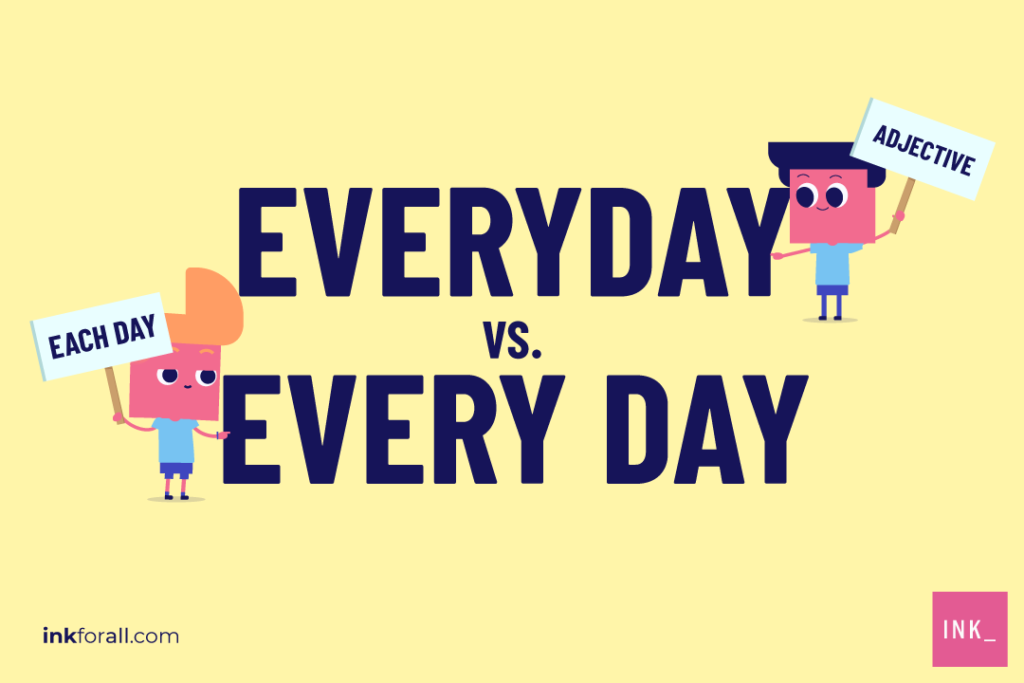

Which is Correct: Everyday or Every day?
Both words are correct, but they are not interchangeable. On one hand, everyday is an adjective and means ordinary, average, or commonplace. On the other hand, every day is usually part of an adverbial phrase. It means daily or describes something you do as part of a daily routine.
Every day is a noun phrase that means “each day.”
Everyday functions as an adjective. It describes an action or item that’s commonplace or something that you do as a matter of habit.
Everyday vs. Every day: Compound Word vs. Noun Phrase
If you’re struggling with choosing between everyday and every day, you’re not alone. Everyday vs. every day is just as confusing as a lot vs. alot and anytime vs. any time.
They look the same; they sound the same, so why aren’t they the same?
Visually, the only difference between these two words is a small space. This is what’s responsible for most of the confusion between everyday and every day.
However, grammatically, the difference is a lot larger. It’s the difference between a word and a phrase.
- Everyday is compound word made up of two words.
- Every day is not a compound word. Instead, it’s a simple phrase made up of two words.
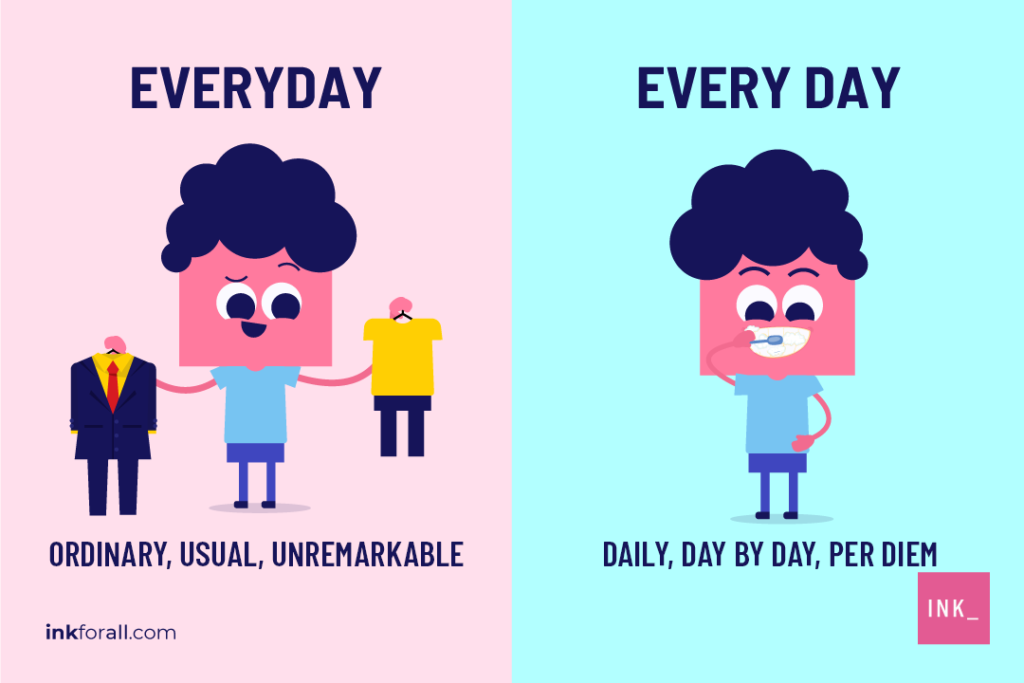

Because I love food, I’ll use cheese and bread. Let’s make every the cheese and day the bread.
You can enjoy each food individually. You don’t have to eat together because they work just fine on their own. Similarly, every is a word that functions just fine on its own without day.
But, you can eat them together. Maybe as a quick snack or part of a cheese plate with other items like fruit and cold cuts. In the same way, the individual words every and day can work together to make the phrase everydayas part of a sentence.
What’s more, when you meld cheese and bread together with heat, the combination creates something entirely different: a grilled cheese. This is more similar to fusing everyand day together to form the compound word everyday.
Beyond Everyday: Other Compound Word Examples
For a non-food example, black and bird are two words that can stand alone. Or, you can put them together to form the word blackbird.
In each of these examples, the joined words create a different meaning compared to when the words were separated. The same idea applies when using everyday or every day.
Building on the concept of compound words, we see that “every” and “day” can indeed stand alone. But you can combine them into a single word with an entirely different meaning.
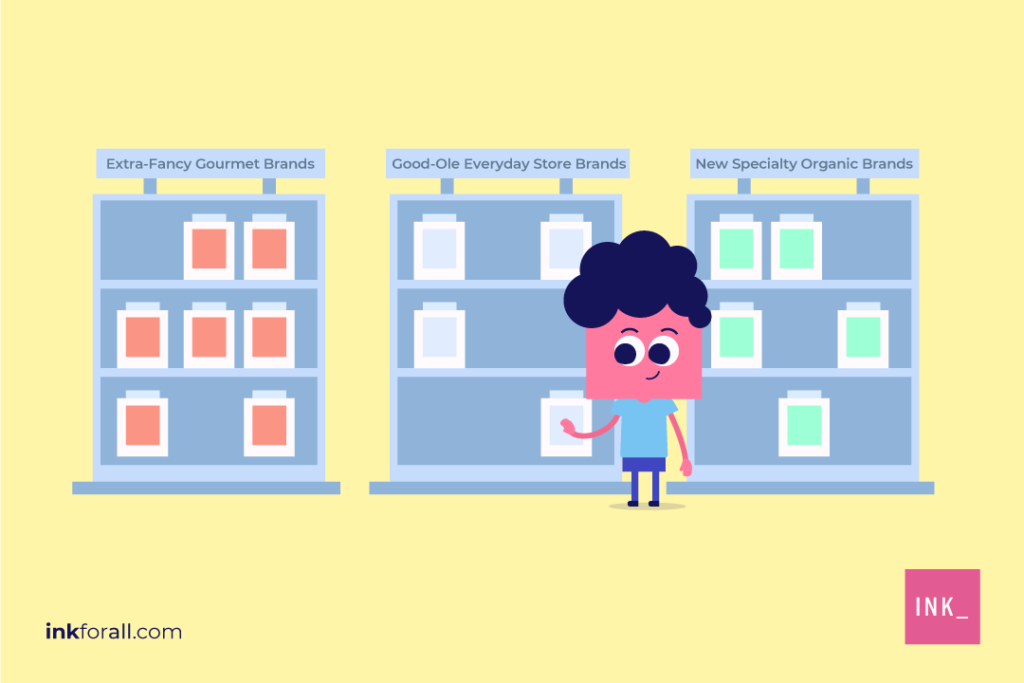

The Best Trick for When to use Which Word
The easiest way to keep things straight is to ask yourself whether you’re talking about each day or something commonplace or average.
So, if you can replace everyday or every day with “each day,” you know that you should go with the two-word option.
As for everyday, remember that it’s an adjective. As such, it will almost always come before a noun. We use everyday to describe something ordinary. You can also swap it with its synonyms such as“regular,” “daily,” “familiar,” “conventional,” or “unremarkable.”
Everyday vs. Every day: How to use Them in a Sentence
Examples of “Everyday” in a Sentence
Examples of “Every day” in a Sentence
Use every day when you’re referring to something that happens each day. You’re most likely going to use every day to talk about a daily occurrence. This may be something everyone frequently does, or it could be an action that’s a permanent part of your routine.
So remember: Everyday is an adjective that describes something ordinary, average, or mundane. The phrase every day is the same as “each day.” And the rest, as they say, is gravy.
Is Everyday Written Together? Test Your Skills!
Everyday Question #1
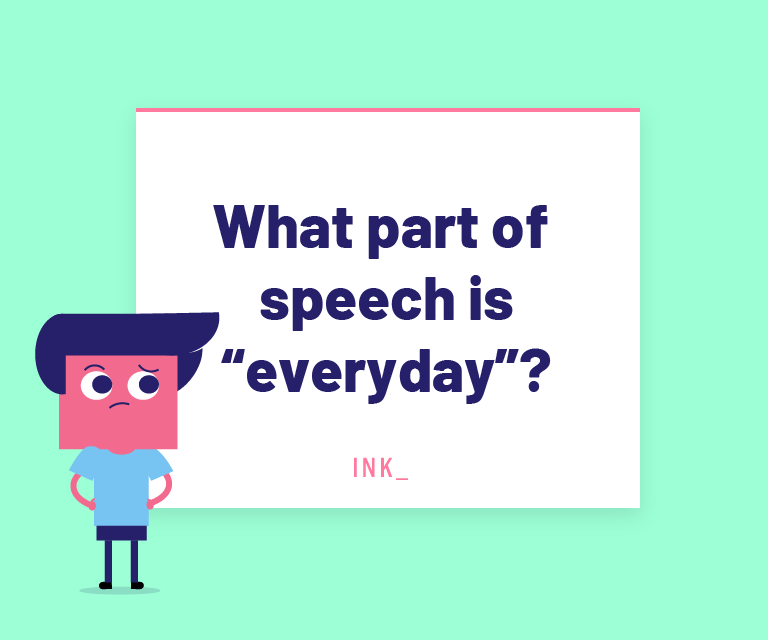

The answer is B. “Everyday” is an adjective that describes an action or item that's commonplace or something that you do as a matter of habit.
Every day Question #2


The answer is FALSE. “Every day” is a noun phrase that means “each day.”
Everyday vs. Every day Question #3
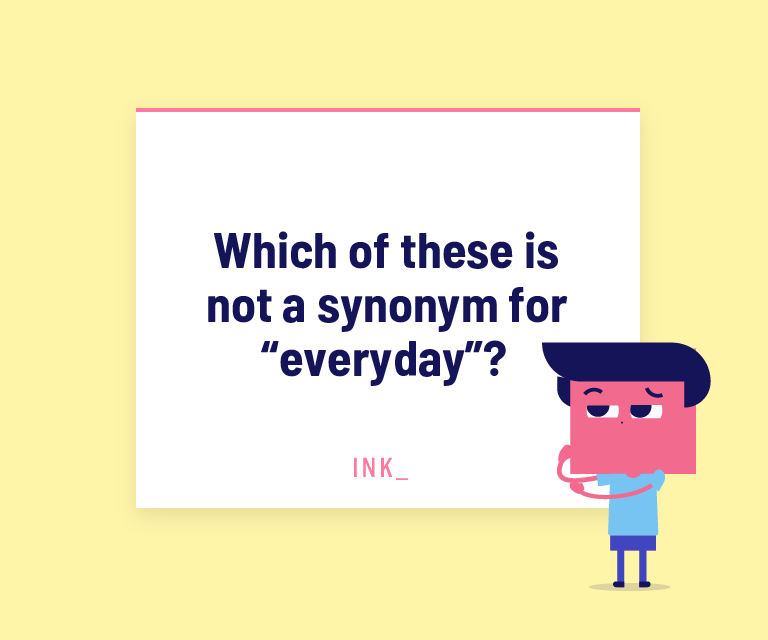

The answer is B. You can't interchange “everyday” and “each day” in a sentence.
Everyday or Every day Question #4
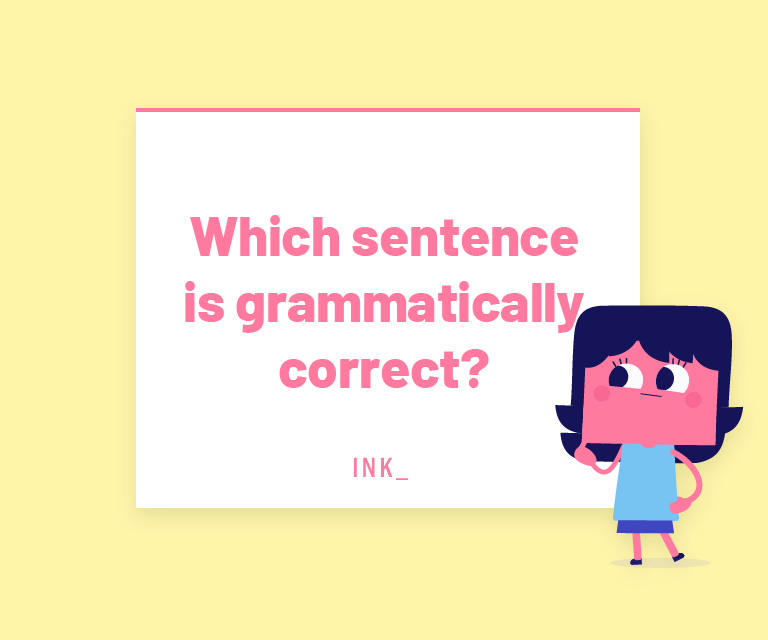

The answer is A. Use “every day” when talking about something that happens each day.
Everyday vs. Every day Question #5
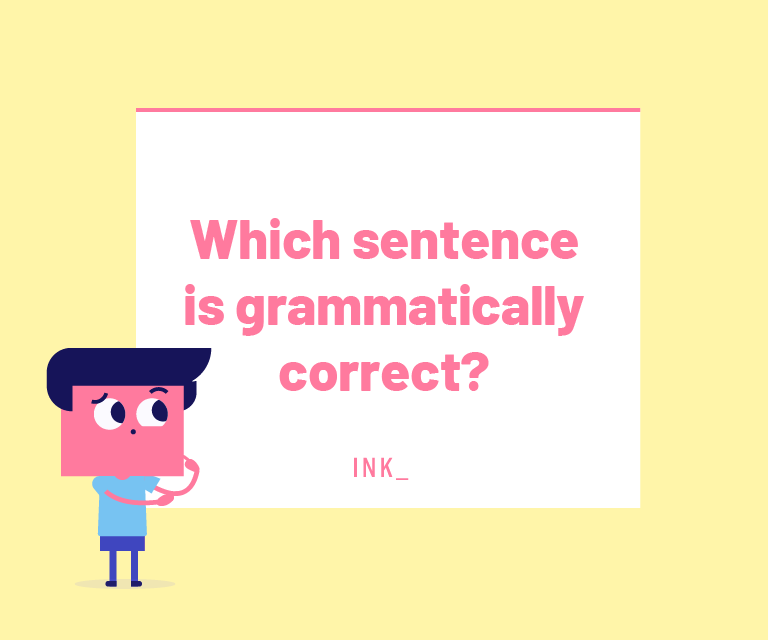

The answer is A. Use everyday when talking about something that is a regular occurrence.

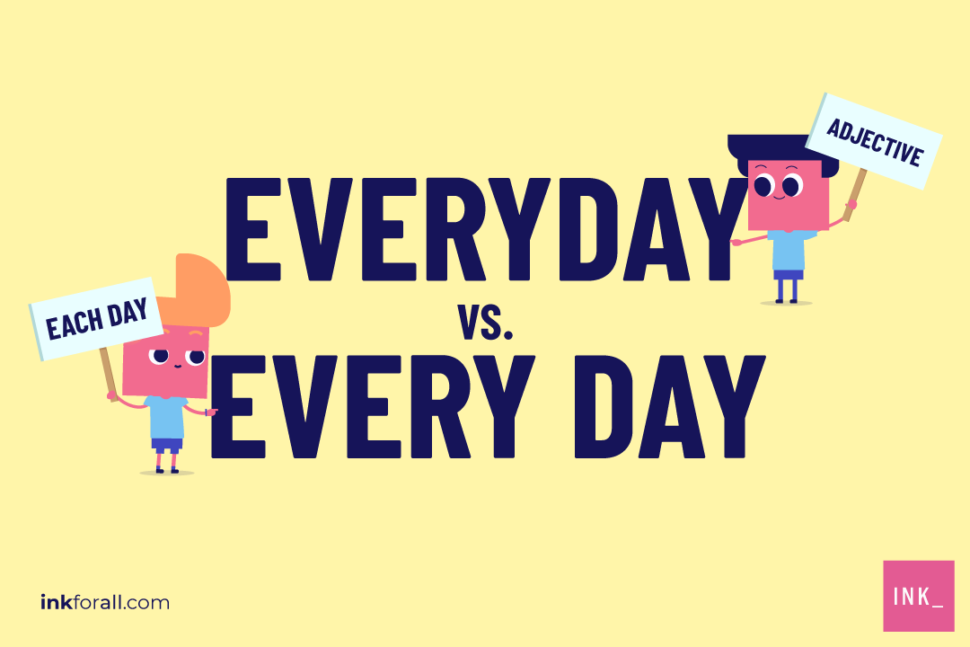
Every Day means
Hi Satya! “Every day” is a phrase that means “each day.” “Every” is an adjective that modifies the word “day.” You can’t use “every day” and “everyday” interchangeably, since the compound word “everyday” functions as an adjective. It describes things that we see or use on a daily basis. I hope this answer helps. Have a great day!
I don’t know your
Hi Satya! Can we help you with anything? Feel free to share your thoughts with us about our post. Take care!